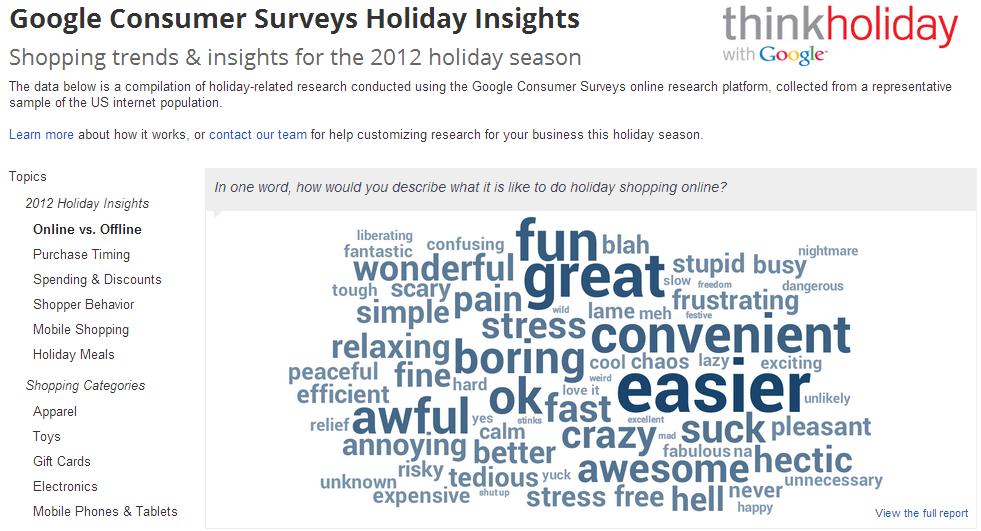Brainstorming for content can be really difficult at times especially, when your job requires you to write about various niches at a short notice. Though there are many tools like discussion forums, content curation sites, social media platforms, social bookmarking sites, etc. that can help to overcome this problem. Using a lot of tools can be overwhelming. Hence, I have come up with some of my favourite tools that can help to do an effective brainstorm for content ideas.
Topsy:
Topsy is one of my favourite tools to check which tweets, photos, videos, etc. are trending on the net. This could be helpful to identify the most shared and engaging content. You can also check the most influential people who shared that content and use this information to create a similar or more improved version of the same concept. You can then outreach to those same influences, knowing they are interested in your contents theme and may be willing to share it with their networks.
Quora:
This is a Q&A site that is quite useful for collecting ideas as you can find any niche specific questions and answers. This helps to gain an insight into the current trends of an industry. The information is reviewed, organised and edited by users which makes it easy to understand the user behaviour.
Google News:
This is the most easy and common way to look for current events and news about your industry, products and keywords. An interesting news piece relevant to your keyword can be used to write a quick, creative and even controversial content.
Google Consumer Surveys:
Try using Google’s consumer surveys which can help to get those last minute infographic or blog post ideas.

Content Curation:
Organising content is quite important to brainstorm for new content ideas. Content suration can be done with the help of many tools like:
Pinterest is all about interesting and unique visuals that can be shared and organised under specific categories and topics. There are many regularly updated boards which can be used to generate ideas for your brainstorm session.
Storify is a great platform that helps users to share stories about an event or occasion. You can curate the most interesting and useful images, tweets, videos, blog posts etc. about an event which can also be shared on Twitter, Facebook and Google Plus. There is also an option to export this curated content to WordPress blogs.
Delicious is one of the oldest social bookmarking sites. It is a collective source of information that is shared, bookmarked and tagged in different categories which can be set as private or public.
LinkedIn:
LinkedIn is the most popular professional networking platform. Not many content writers think about LinkedIn while looking for ideas. However, LinkedIn has some great content in the form of discussions that can be used if you are looking to write about your industry related blog post. Join specific groups and look for the topics people are talking about. Use the most recent and engaging idea for your next blog post. You can have an edge over your competitors by simply writing and answering those frequently asked questions in a much more interesting way.
Attend conferences and events:
Attending an event or conference, specific to your industry, can be a great platform to generate numerous ideas in a day or short period of time. Networking and socialising is definitely one of the best ‘tools’.
Check old posts
One of the best ways to gather ideas for a new post is to check your old blog posts and see if anything can be re-used, updated or written in a more interesting way. This method works really well if the content is worth re-using.
Create case studies:
You can always select one of your favourite companies or clients and write a case study about their strategy and achievements. This can be a great method to promote your agency at the same time while creating useful content.
Google Trends:
Use Google Trends to search for the most popular and trending topics of your industry.
Social Bookmarking Sites:
If your job responsibility involves writing content and research, then checking Reddit and Stumbleupon should be a part of your daily routine. Keeping yourself updated with the most shared content is always helpful.
Google Reader:
Google Reader can provide good amount of content according to your choice of keywords and categories on a regular basis. This source of information is quite beneficial if you prefer to receive specific content about various categories or keywords.
Data Visualisation:
Exploring different infographics and data visualisations is also imperative to your research as it presents data or information in a presentable, creative and a more comprehensive way. Sites like visual.ly and Daily Infographic have a vast collection of visuals to explore. To apply your ideas for creating an infographic, sites like World Bank and data.gov.uk can be very useful sources of official data that can be accessed and requested by anyone.
Talk to your Colleagues
Last but not the least, having frequent brainstorming sessions with colleagues can be a very beneficial idea for content generation and as a team building activity. This has been one of my favourites as it creates a friendly environment and as a result, ideas keep flowing.
There are many more ways in which you can brainstorm for fresh content and this list is definitely limited to my choice. Please share your favourite methods and tools in the form of comments below if you think they can be helpful.

 Site Explorer
Site Explorer Keyword tool
Keyword tool Google Algorithm Changes
Google Algorithm Changes

Was just having a look through this and generally I’d also suggest where relevant signing up to relevant industry newsletters and journals should also be part of your check list.
If you’re going to market a product you need to take the same level of interest as a person who works solely in that industry or at least close to.
I get at least 10 iGaming journals through my door every month and OK this may not be possible in certain sectors, but there is a journal for pretty much everything and a lot are free.
Added to which this then gives you more understanding of what your client is doing what they’re selling and how to properly market them and gives the client a bit more confidence that you’re actually understanding of what you’re doing.
Nothing kills an SEO contract quicker than an account management who doesn’t know the industry of the client they’re managing.